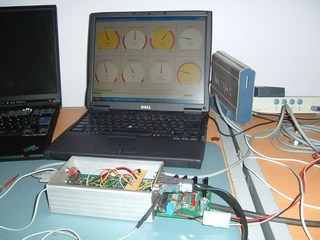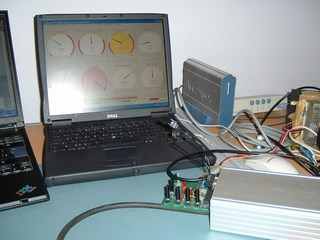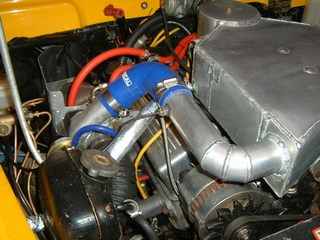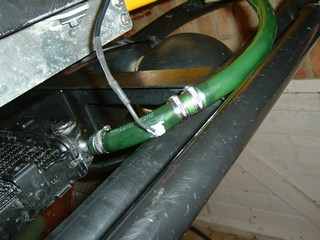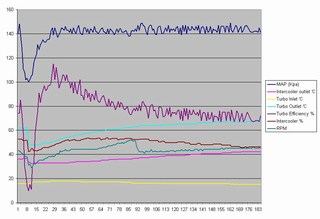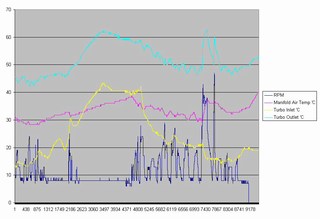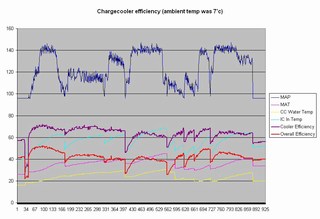
Using Megasquirt to display and log Turbo Adiabatic Efficiency and Intercooler efficiency
4 January 2006 -
In order to get some meaningful data on efficiency of my turbo setup, I've added
two additional temperature circuits to my MegaSquirt. They are simply a duplication
of the existing coolant circuits feeding into X6 and X7 on the MegaSquirt respectively.
When duplicating the circuit, omit the 5.1v zener diode as the ECU already has this
internally -
The thermistor itself is from RS part number 151-
Temperature probes inserted into turbo outlet and water circuit (to calc IC efficiency)
Then you modify your megatune software to grab the value and create a graph. I changed the variables from egt and fuel pressure to a more universal x6ADC and x7ADC, then done a search and replace on all occurences.
Click here to download my modified msns-
Assuming you place a one temp probe pre-
Here's some results; My turbo is about 65-
Here's the results for the Chargecooler. I fitted a temp probe to the water circuit on the CC. Show's that CC is 70% efficient, but less than 50% efficient overall (i.e. compared to ambient).
